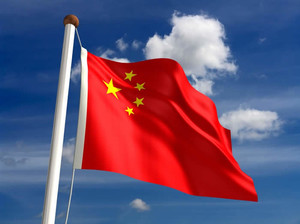New guidelines have been finalized in China to try and make the country a more drug-friendly market, while also promising progress in the use of generics.
New guidelines expected to encourage generics in China
Home/Guidelines
|
Posted 27/10/2017
 0
Post your comment
0
Post your comment

In May 2017, the China Food and Drug Administration (CFDA, simplified Chinese: 国家食品药品监督管理局) published drafts of four proposed policies, Circular Nos. 52, 53, 54 and 55, which introduce significant changes in the drug and device approval processes. These guidelines were finalized and released by China’s State Council on 15 October 2017.
Circular 52 expedites the approval process for medical devices and drugs that meet urgent clinical needs. If early-mid clinical trials yield positive results, medical products under this category may receive conditional approval.
Circular 53 encourages innovation by reforming the existing clinical trial management policies. CFDA will adopt greater flexibility by no longer requiring certification of clinical trial sites. Although they will still need to pass an inspection by CFDA before the results are deemed acceptable.
Circular 54 bolsters the market authorization holder (MAH) system in China. This will give the MAH legal responsibility for product quality and makes it the primary body responsible for all post-market surveillance activities.
Circular 55 increases the intellectual property (IP) protection of pharmaceuticals. It proposes establishing a patent linkage system for drugs, similar to the US system, requiring all drug approval filings to be correlated with valid patents. CFDA is responsible for approving drug applications, while the State Intellectual Property Office handles patent applications.
The government also plans to publish a ‘China Orange Book’, which will list all of the approved drugs in the country. By establishing this ‘Orange book regime,’ China’s government hopes to facilitate stronger patent protection and decrease the frequency of patent infringement in China.
The government also plans to periodically release a list of drug patents that are no longer valid, which it says will guide drug companies in the production of generics.
According to CFDA Vice-Minister Wu Zhen, ‘the protection of drug patents is in line with China’s push to build itself up as an innovative country, while upgrading its pharmaceutical industry’. Although the country wants to ‘encourage innovation’ it also wants to ‘encourage generic drugs too’. He added that ‘when original patent terms lapse, sales of generics will cut down the price of those drugs, and lead to easier access for their clinical usage’.
There are currently more than 4,000 pharmaceutical companies in China producing generics. Competition between them used to be unregulated and the quality of their products was sometimes questionable. In fact, an investigation by CFDA between January 2015 and January 2016 found that 1,184 (80%) drug applications submitted to the agency were rejected or withdrawn due to incomplete or fraudulent clinical data [1]. However, China has been moving toward better regulation of its generics industry, with the release of these guidelines being just one of the measures being implemented.
Related articles
China releases draft biosimilars guidance
Poor quality pharma ingredients abound in China
China follows the Indian and Thai route to affordable drugs
Reference
1. GaBI Online - Generics and Biosimilars Initiative. China’s CFDA rejects more than 80% of drug applications [www.gabionline.net]. Mol, Belgium: Pro Pharma Communications International; [cited 2017 Oct 27]. Available from: www.gabionline.net/Pharma-News/China-s-CFDA-rejects-more-than-80-of-drug-applications
Permission granted to reproduce for personal and non-commercial use only. All other reproduction, copy or reprinting of all or part of any ‘Content’ found on this website is strictly prohibited without the prior consent of the publisher. Contact the publisher to obtain permission before redistributing.
Copyright – Unless otherwise stated all contents of this website are © 2017 Pro Pharma Communications International. All Rights Reserved.
Source: China Daily
Policies & Legislation
EU accepts results from FDA GMP inspections for sites outside the US
WHO to remove animal tests and establish 17 reference standards for biologicals
Most viewed articles
The best selling biotechnology drugs of 2008: the next biosimilars targets
Global biosimilars guideline development – EGA’s perspective
Related content
US guidance to remove biosimilar comparative efficacy studies
New guidance for biologicals in Pakistan and Hong Kong’s independent drug regulatory authority
Canada poised to remove requirement for Phase III trials for biosimilars
European position paper on AI in medicinal product lifecycle
New guidance for biologicals in Pakistan and Hong Kong’s independent drug regulatory authority

Home/Guidelines Posted 20/10/2025
Canada poised to remove requirement for Phase III trials for biosimilars

Home/Guidelines Posted 22/07/2025
The best selling biotechnology drugs of 2008: the next biosimilars targets








Post your comment